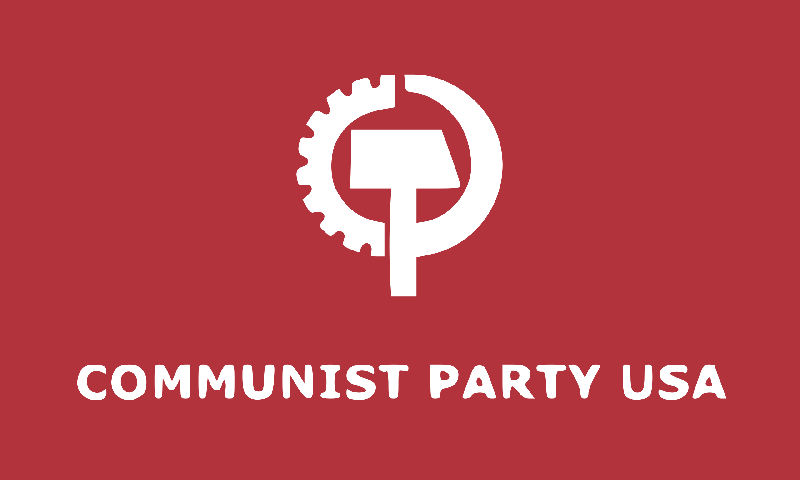
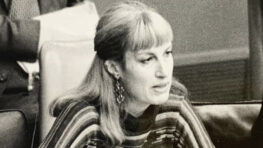
Nuclear disarmament was Karen Talbot’s passion, and the United Nations was the stage for her activism.
Her time as leader in the World Peace Council was bookended by the popular, worldwide anti-nuclear movement of the 1970s and the nuclear arms buildup and renewed Cold War of the 1980s. When in 1983 President Reagan called the Soviet Union an “evil empire,” the hopes for detente and nuclear disarmament era grew dim.
This was the atmosphere in which Karen Talbot — speaker, journalist, researcher, and organizer — toiled tirelessly to reduce the threat of nuclear war and to promote disarmament.
From Denver to the United Nations
The song “Bread and Roses” held special significance for Karen Talbot. It was the song sung at her mother’s funeral in 1938 when Karen was just four years old. As a result of the Great Depression, her mother, Demma (Peggy) Sandell, died needlessly in childbirth due to lack of affordable prenatal care. Times were hard and money was scarce. She was buried without a headstone. At the time of her death, Karen’s mother was the Denver, Colorado, District Secretary of the U.S. Communist Party.
Karen’s father, a son of Swedish immigrants, had graduated from the music conservatory in Denver but was unable to pursue his career in music. Jobs were hard to come by, and even then a musician’s pay could not support a family. The Sandell family moved to Oregon in an attempt to survive on a small farm there. Through the WPA, her father eventually got a job as a machinist. He remained politically active himself, performing with Pete Seeger and working in the civil rights movement. At one point, the famous African American contralto Marian Anderson stayed at their small house because she was denied a room at the hotels in Eugene. Karen learned to play the piano from her father and loved to play and sing whenever she got the chance.
At the age of eleven, on Karen’s birthday, August 6th, the first atomic bomb was dropped on Hiroshima. Looking back, Karen often reflected how pivotal this seminal, tragic event was in shaping her awareness of the horrors poised by nuclear weapons. An impressionable young girl, she felt a keen empathy and solidarity for the school-aged children of Hiroshima. This keen compassion for the suffering of others is what fueled Karen’s lifelong dedication to the struggle for peace and justice.
In her thirties, Talbot participated in the movement to end the war in Vietnam. She was in the West Coast leadership of the Mobilization Committee to End the War in Vietnam and became the project manager for the large anti-war demonstration held in San Francisco on April 15, 1967. She was active in Democratic Party politics and the women’s peace movement. Among other things, she coordinated a 100-organization coalition on economic and social justice and peace issues. During this time, she also worked for the People’s World. Soon promoted to business manager, she worked assiduously toward expanding the paper’s readership. She believed strongly in the role of the press in uniting the working class in their various issues through effective news coverage of their struggles.
On the international stage
In the early 1970s, an opportunity arose for Karen to take her activism to the international arena. Karen joined the World Peace Council and quickly took on leadership roles. On the front lines of progressive movements of the world, the WPC took a principled stand against imperialism and for peace and justice. Her family relocated to Finland, where the main offices of the WPC were located. Finland was one of the few European countries unaligned with either NATO or the Warsaw Pact.
For more than 12 years, Karen Talbot was the WPC’s permanent representative to the United Nations. As a member of the WPC Secretariat, she was responsible for three of its departments: Nuclear Disarmament, the United Nations, and Women. She edited the WPC publication, Disarmament Forum, which was produced as a contribution to the World Disarmament Campaign of the United Nations.
One of Karen’s major responsibilities was the 1975 New Stockholm Peace Appeal. This petition campaign demanded united action to stop the arms race and ban all nuclear and other weapons of mass destruction, while calling for general and complete disarmament and a United Nations World Disarmament Conference. More than 500 million people signed the appeal (representing 700 million persons), including representatives of national legislatures, presidents of nations (such as President Kekkonen of Finland), leaders of political parties, and presidents of national trade unions. A sampling of these signatures and the New Stockholm Peace Appeal were then presented to the first ever special session of the United Nations devoted to disarmament in 1978.
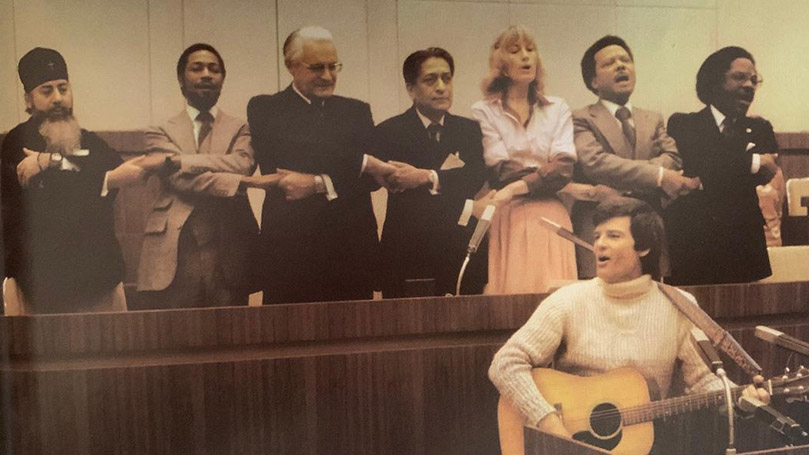
Karen also served as Deputy Secretary-General of the International Liaison Forum of Peace Forces, which for several years conducted international dialogues in the Austrian capital on crucial issues of world peace and security. She worked alongside elected officials and political party representatives from around the world, scientists and academics, and leaders and activists of peace and justice groups.
Her experience at the UN was extensive. She spoke before various UN bodies and regularly participated in delegations that met with the UN Secretary-General and other UN officials. She worked with the Special NGO Committee on Disarmament, which facilitates the informal disarmament meetings of nongovernmental organizations at the UN. Karen met with government delegations to the Conference on Disarmament, the sole multilateral negotiating body of government representatives charged with working out disarmament and arms limitation agreements.
An unshakeable internationalist, Karen prided herself on building diverse coalitions by finding common ground. She wrote, “No one country alone, no one region alone, no matter how strong can win the struggle to avert nuclear war. Victory will only come through international unity.”
Beyond the peace movement
While in the WPC, Karen found time to contribute to other movements. She had a rich experience in speaking around the world, writing, and organizing conferences on not only peace but also apartheid, racism, economic development, decolonization, human rights, equality for women, the rights of the child, and the struggle of Indian peoples of the Americas.
On September 20–23, 1977, the NGO Conference on Discrimination Against Indigenous Population took place. It was the first UN conference with Indigenous delegates attending and speaking for themselves at the UN. Karen, along with her husband Steve Talbot, played an important role in organizing and participating in this historic event.
Karen was deeply involved in the NGO Planning Committees for the world conferences of women in Copenhagen and Nairobi, and she led the WPC delegations to both the NGO Forums and the UN Conferences.
The burden of male chauvinism
Throughout her high-level involvement, however, Karen faced obstacles that required her to “fight to stay in the struggle,” often having to fight to be heard and respected as a leader in the movement. She observed that women were the “housekeepers of the movement,” getting the necessary work done but with very little recognition and very few positions of leadership. During most of her tenure at the WPC, she was the only woman in leadership — all the rest were secretaries or receptionists. It was the 1970s and ’80s, and a toxic male chauvinism pervaded the culture.
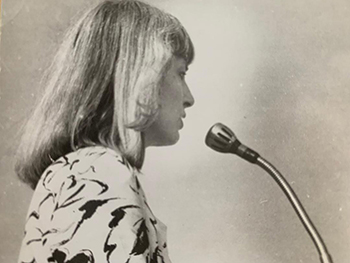 The numerous micro-aggressions she experienced added to the burden that she shouldered as an activist grappling with some of the most pressing world issues of the time. Karen spoke of being constantly cut off and interrupted while her male colleagues unwittingly dominated 90% of the conversations. At international conferences, she frequently had to contend with being treated as if she were invisible: some male colleagues refused to make eye contact or acknowledge her, even though she was there on behalf of the World Peace Council and possessed relevant expertise on the topics of discussion. She had little recourse but to educate her male colleagues on how their unconscious chauvinistic behaviors not only undercut the contributions of women but also undermined the international peace movement as a whole.
The numerous micro-aggressions she experienced added to the burden that she shouldered as an activist grappling with some of the most pressing world issues of the time. Karen spoke of being constantly cut off and interrupted while her male colleagues unwittingly dominated 90% of the conversations. At international conferences, she frequently had to contend with being treated as if she were invisible: some male colleagues refused to make eye contact or acknowledge her, even though she was there on behalf of the World Peace Council and possessed relevant expertise on the topics of discussion. She had little recourse but to educate her male colleagues on how their unconscious chauvinistic behaviors not only undercut the contributions of women but also undermined the international peace movement as a whole.
A chilling effect
Much of Karen’s work in the WPC took place in the 1980s, when the threat of nuclear war was suddenly heightened by geopolitical tensions. The Reagan administration had accelerated the modernization of strategic nuclear weapons, increasing spending by 39% over eight years on research, development, testing, and production. U.S. leaders talked openly about winning a nuclear war, and new intermediate-range missiles were deployed in Europe. Then, in 1983, NATO conducted an aggressive war game exercise called Able Archer 83, setting the Soviet nuclear forces on high alert.
The socialist world, non-aligned nations movement, and progressive organizations were under an orchestrated attack led by Reagan. This created a chilling atmosphere for peace and disarmament activists like Karen. Her work took on a new urgency just as it became more difficult.
Over time, this campaign had its effect: the WPC eventually lost its support and influence after the fall of the socialist world.
Later years
After her tenure with the WPC, Karen continued her struggle for peace and justice. During the last years of her life, she worked with Ramsey Clark around the Iraq war and traveled to Korea in support of reunification. In San Francisco, she founded and directed the International Center for Peace and Justice and worked with the San Francisco Labor Council. She also continued her long affiliation and work with the Women’s International League of Peace and Freedom. At the time of her death, she was a member of the National Committee of the CPUSA.
In 1994 she received the Martin Luther King Jr. award for peace. She also received the United Nations Messenger of Peace award on behalf of the Gray Panthers as their executive director.
A prolific writer, Karen wrote on numerous issues, including NATO’s role in the war in Yugoslavia for Covert Action Quarterly. Twice she was selected by Project Censored for authoring one of the 25 most suppressed stories, one of which was “Coup-Making in Venezuela: The Bush Administration and Oil Factors” published in the People’s Weekly World. Karen’s deep Marxist understanding of the roots of war mongering and war profiteering meant she was consistently in the vanguard of voices to speak out against a new call for US military action. Just two months after 9/11, Karen provided a prescient insight into Bush’s “war on terror.”
In her article entitled “Afghanistan Is Key to Oil Profits” she wrote: “The September 11th terrorist attacks have provided a qualitatively new opportunity for the U.S., acting particularly on behalf of giant oil companies, to permanently entrench its military in the former Soviet Republics of Central Asia, and the Transcaucusus where there are vast oil reserves — the second largest in the world.” She goes on to elaborate: “The very nature of the [capitalist] system inevitably drives corporations to expand or die. This will be done at any cost, no matter the suffering it may bring to human beings or the devastation it unleashes upon the environment. Such are the characteristics of today’s imperialism, the source of war, terrorism and violence.”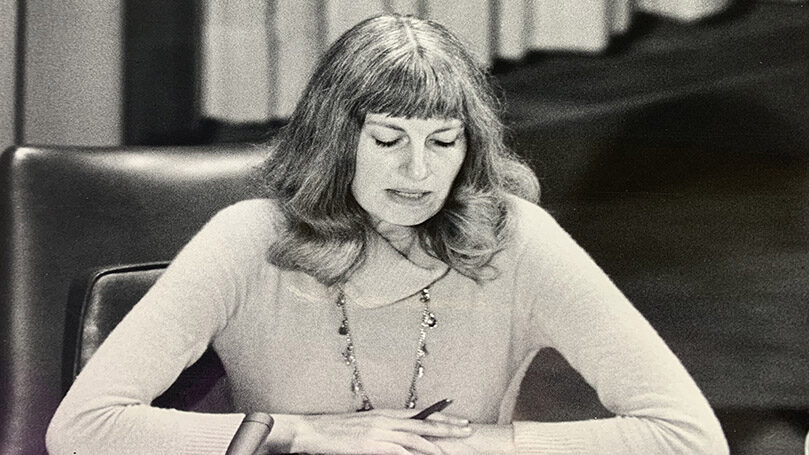
Late in life, she was working on an extensively researched book exposing the role of oil and the network of oil pipelines in the many wars in former Yugoslavia, Iraq, and other places. This work was cut short by her death in October 2003 at the age of 69.
After Karen’s death, Juan Lopez, previous chair of the Communist Party USA in northern California, said of her, “When it was sometimes difficult to speak out against US foreign policy, and when others were timid or held back, Karen didn’t flinch. She was a strong and courageous woman, always there when the cause of peace and justice needed a clear and unyielding voice.”
Karen was a true internationalist and lifelong advocate of socialism.
In March 2022, with the escalation of geopolitical tensions over Ukraine and the call for increasing U.S military involvement, our world once more teeters on the brink of nuclear war and annihilation. This should feel familiar because we have been in this place before. In 2003 Karen’s words resounded as profoundly then as they do now:
In today’s world, bristling with arsenals of nuclear weapons, resort to war must end once and for all. Fundamental societal changes are required in order to create the conditions for redirecting the trillions of dollars flushed down the drain of military spending to feed the hungry, create jobs, provide quality housing, healthcare, and education in the US and worldwide. This is also the way to end terrorism. Only massive democratic actions by the people can stop the drive to war and ultimately accomplish these other essential changes. Therefore, it is more vital than ever before in history to turn out in our tens of millions for the upcoming worldwide anti-war demonstrations. These challenges can and must be met for the sake of humankind’s very survival.
Images: 1) Karen speaking as the UN representative of the WPC at the UN Special Political Committee regarding Apartheid policies of South Africa, Nov. 13, 1980. 2) Special Session of the WPC in Berlin Feb. 2-5 , 1979. They sang “We shall overcome” led by singer Dean Reed at a meeting devoted to Martin Luther King Jr., which Karen organized. To her left is Romesh Chandra, president of the WPC. Note that Karen is the only woman on the stage. 3) Karen speaking at a demonstration of approximately 600,000 in New Delhi in 1986. Her speech was titled “UN International Year of Peace: Inseparability of Development and Peace.” 4) Speaking at the UN Special Committee against Apartheid, Mar. 13, 1981. Photos courtesy of Sonya Haynes.
Source: Communist Party U.S.A.
